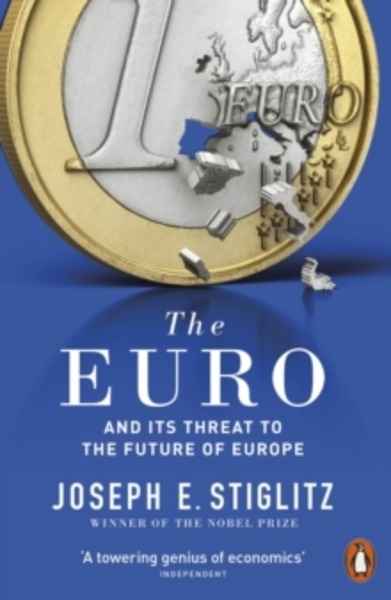The Euro : And its Threat to the Future of Europe

Editorial Penguin Books Ltd
Fecha de edición noviembre 2017 · Edición nº 1
Idioma inglés
EAN 9780141983240
496 páginas
Libro
encuadernado en tapa blanda
Resumen del libro
Designed to bring Europe closer together, the euro has actually done the opposite: after nearly a decade without growth, unity has been replaced with dissent and enlargements with prospective exits. Joseph Stiglitz argues that Europe's stagnation and bleak outlook are a direct result of the fundamental flaws inherent in the euro project - economic integration outpacing political integration with a structure that actively promotes divergence rather than convergence. Money relentlessly leaves the weaker member states and goes to the strong, with debt accumulating in a few ill-favoured countries.
The question now is: can the euro be saved? Laying bare the European Central Bank's misguided inflation-only mandate and explaining why austerity has condemned Europe to unending stagnation, Stiglitz outlines three possible ways forward: fundamental reforms in the structure of the Eurozone and the policies imposed on the member countries suffering the most; a well-managed end to the euro; or a bold, new system he dubs the 'flexible euro;. This important book, by one of the world's leading economists, addresses the euro-crisis on a bigger intellectual scale than any predecessor.
Biografía del autor
x{0026}lt;P x{0026}lt;B Joseph E. Stiglitzx{0026}lt;/B , Premio Nobel de Economía en 2001, es actualmente catedrático de economía en la Universidad de Columbia tras una intensa carrera académica en prestigiosas universidades, como Yale, Oxford y Stanford. Además, ha sido asesor económico del gobierno de Bill Clinton y economista jefe y vicepresidente senior del Banco Mundial. Autor del x{0026}lt;I bestsellerx{0026}lt;/I internacional x{0026}lt;I El malestar en la globalizaciónx{0026}lt;/I (Taurus, 2002), también ha publicado x{0026}lt;I Los felices 90x{0026}lt;/I (Taurus, 2003), x{0026}lt;I Cómo hacer que funcione la globalizaciónx{0026}lt;/I (Taurus, 2006), Cx{0026}lt;I omercio justo para todosx{0026}lt;/I (Taurus, 2007), x{0026}lt;I La guerra de los tres billones de dólaresx{0026}lt;/I (Taurus, 2008), x{0026}lt;I Caída librex{0026}lt;/I (Taurus, 2010) y x{0026}lt;I El precio de la desigualdadx{0026}lt;/I (Taurus, 2012).x{0026}lt;/P








